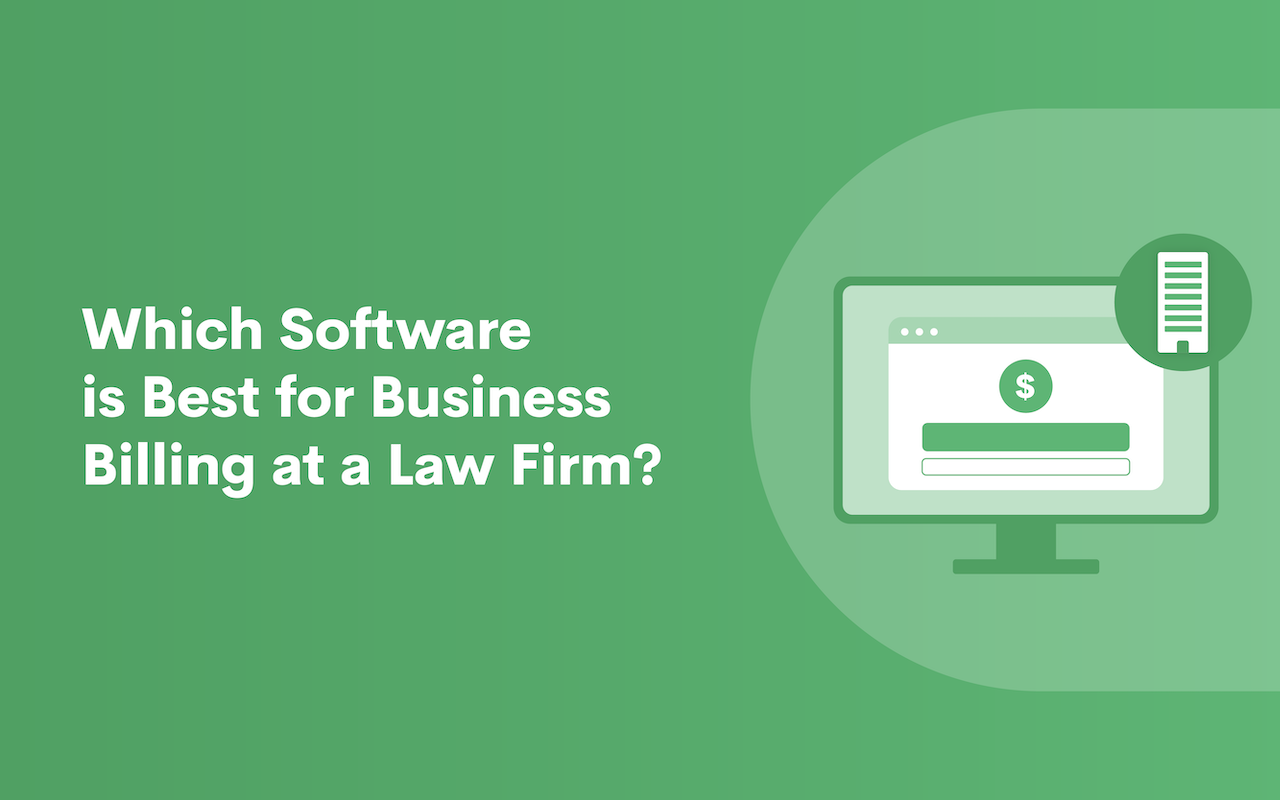Which Software is Best for Business Billing at a Law Firm?

Choosing the best legal software for business billing depends on various factors such as the size of the firm, specific needs, budget, and preferences. Fortunately, comprehensive legal billing software for small firms can track billable hours, generate invoices, and manage client accounts efficiently.
How do You Simplify the Billing Process at a Law Firm?
Some strategies to simplify the billing process include:
- Standardizing billing practices across the firm with consistent templates, billing codes, and invoicing procedures
- Setting clear billing guidelines that outline rates, billing increments, and accepted payment methods
- Using legal billing software that automates time tracking, invoicing, and payment processing
- Integrating legal billing tools with case management systems to easily track billable hours and expenses
- Accepting online payments is convenient for clients and encourages them to pay promptly
For law firms, the time between completing a task and collecting a client’s payment is critical. When you streamline the billing process at a law firm, you can significantly improve efficiency and reduce administrative burden. Plus, simplifying the billing process shortens the time frame and increases profitability.
What is a Good Billing Software for Law Firms?
Before choosing billing software, a law firm should ensure that the system meets its specific needs and requirements. Here are some important considerations to make:
- Features: Evaluate the features offered and determine if they align with the firm's billing processes and requirements.
- Ease of use: Choose billing software that is intuitive, user-friendly, and easy to navigate, with clear instructions and minimal training requirements.
- Customization options: Look for billing software that provides the ability to customize invoice templates, billing rates, billing codes, and reporting formats.
- Integration capabilities: Ensure that the software integrates seamlessly with other systems used by the firm, such as practice management software, accounting software, and document management systems.
- Scalability: Choose a billing system that can scale with the firm as it grows to accommodate an increasing number of users, clients, and matters without sacrificing performance or functionality.
- Cost and pricing structure: Evaluate the cost of the billing software, including any subscription fees, implementation costs, and additional charges for add-on features or support services.
- Customer support and training: Look for vendors that offer responsive customer support, comprehensive training resources, and ongoing assistance to address any issues or questions that may arise.
- User reviews and recommendations: User reviews and recommendations from peers can provide valuable insights into the software's strengths, weaknesses, and overall suitability for the firm's needs.
The right legal billing software will enhance a firm’s efficiency, accuracy, and client satisfaction with the billing process.
Legal Billing System Examples
When selecting a billing system, it's essential to consider factors such as the firm's specific requirements, budget, ease of use, integration capabilities, and customer support. With Lawmatics, lawyers can simply start a timer and get to work. When they’re done, they’ll have an accurate time log that auto-populates directly into an invoice that can be reviewed or adjusted before being sent to a client. The result? A legal billing process that’s easier than ever.
Which Software is Best for Business Billing in the Legal Field?
There are many legal billing software systems to choose from, including:
- Lawmatics. Time and billing software that offers unparalleled visibility and reporting on billable hours, expense tracking, accounts receivables, and profitability for each team member — in real-time.
- Clio. A cloud-based legal practice management software that offers robust billing features that enable time tracking, invoice generation, trust accounting, expense management, and reporting.
- Quickbooks. While not specifically designed for law firms, QuickBooks Online is a widely used accounting software that can be integrated with Lawmatics to directly sync invoice data to the platform.
- LawPay. A system that integrates with various Lawmatics features to seamlessly send invoices, trigger automations upon payment, and enable access to all key data related to invoices sent.
Although there are many legal billing systems available to law firms, many providers offer free trials or demos, allowing firms to evaluate the software before making a commitment.
Is There Free Billing Software?
Yes, many paid platforms offer free versions suitable for smaller law practices or individual practitioners who want basic billing functionality without the cost associated with premium software. However, paid legal billing systems typically provide more advanced features, better support, and greater compliance with legal industry standards.
Which Software is Best for Business Billing in the USA for Small Businesses?
- The best invoicing software for small businesses must be simple, straightforward, functional, and allow for customization to accommodate the unique billing needs of small law firms.
- The best billing software for small businesses should automate repetitive billing tasks like time tracking, invoice generation, and payment notifications and reminders so that lawyers can put billing on autopilot and focus on client matters.
With flexible time tracking and custom billing rates, Lawmatics helps law firms of all sizes provide a client-focused billing experience. To learn more about how you can bill your clients in a way that makes everyone happy, request a demo today.


